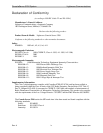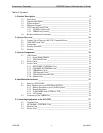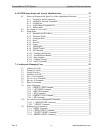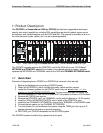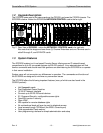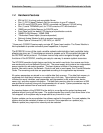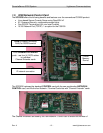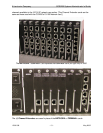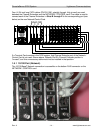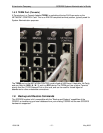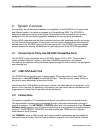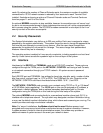
A Lantronix Company SCS3230 System Administrator's Guide
15.00.038 - 11 - May 2002
1.4 Hardware Features
• 3RU tall (5-1/4 inches) rack-mountable Server
• One (1) 10/100 baseT Network Port for connection to your IP network
• Up to 32 serial DEVICE ports, RS232, connected via Category 5 (RJ45) wiring
• One (1) serial TERMINAL port, for VT100 console or PC with emulation
• 128KB-per-port Buffer Memory for DEVICE ports
• Front Panel multi-line backlit LCD display and pushbutton controls
• 128MB FLASH Memory, 128MB RAM
• * Redundant Power Inputs (chassis dependant)
• Optional Analog Modem for dial up access (non-secure)
• Power Options: Universal AC (100-240V) or -48VDC
* Some early CS3200 Chassis employ a single AC Power Input module. The Power Module is
field-replaceable to provide redundant power capabilities, if required.
The SCS3230 is one of the most versatile network administration tools available today,
allowing as many as 17 simultaneous users to access up to 32 connected devices via
the RS-232C serial protocol. Pull-down menus help users navigate through all the
functions of the SCS3230, creating an easy-to-use way to access system resources.
The SCS3230 consists of eight device card slots, two switch card slots, four access card slots,
one modem slot and one Network/Control slot. The power supply slot contains two independent
power supplies for redundant operation. The basic system consists of the power supply
module, two switch cards, the Network / Control card, and in most cases, four Channel Extender
Cards. The remaining card slots are populated according to the application requirements.
All system parameters are stored in non-volatile data flash memory. This data flash memory is
organized such that there is always a complete copy of all data. Typical stored information
includes the users’ identities, user passwords, port parameters (such as baud rate, device
name, etc.) and other system information. The data flash memory allow for a maximum of 200
user profiles to be stored, along with the parameters for all cards. System parameters may be
backed up and restored from a local serial connection.
An important feature of the SCS3230 is the ability to re-configure the system hardware and
software without turning off the power. The system boards have circuitry that allows them to be
'hot swapped' so the system may be expanded at any time while in use.
System updates can be accomplished via software upload to the system. For most updates, the
system need not be restarted or taken out of service. Some operations or updates (e.g.,
Network update) may require the network ports be restarted.




